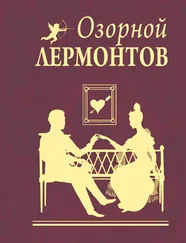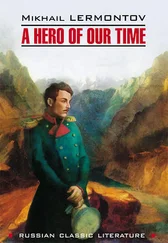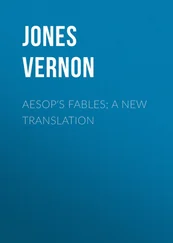“How boring!” I exclaimed without meaning to. I had really been expecting a tragic outcome, and suddenly my hopes were unexpectedly dashed! “But, it can’t be,” I continued, “that the father didn’t figure out that she was at the fortress?”
“Well, it seems that he had his suspicions. A few days later, we learned that the old man was killed. Here is how it happened…”
My attention was awakened again.
“I should tell you that Kazbich imagined that Azamat had stolen his horse with the consent of his father, at least that’s what I figure. So, one day, he waited on the road, at three verst s from the aul. The old man was returning from a fruitless search for his daughter. His retinue was some way behind, it was twilight, and he was going along at an absentminded pace. Suddenly Kazbich dived out of a bush like a cat, and, with a thrust of his dagger, threw the prince to the ground, took the reins—and was off. Some of the retinue had seen the whole thing from a knoll and tore off in pursuit, only they didn’t catch him.”
“He was compensating himself for the loss of his horse, and taking his vengeance too,” I said, to prompt an opinion from my interlocutor.
“Of course, in their terms,” said the staff captain, “he was absolutely right.”
I couldn’t help but be struck by the Russian’s ability to adapt to the customs of the people among whom he finds himself living. I don’t know if this characteristic of mind deserves reprimand or praise, but it does prove his incredible flexibility and the presence of that clear common sense, which forgives evil where it seems unavoidable, or impossible to destroy.
In the meantime, the tea had been drunk. Our horses, harnessed for some time now, were chilled to the bone in the snow. The moon paled in the West and seemed prepared to be plunged into her black clouds, hanging across the distant peaks like the tatters of a ripped curtain. We emerged from the saklya. Contrary to the predictions of my fellow traveler, the weather had clarified and promised us a quiet morning. Dances of stars wove themselves on the distant horizon into marvelous patterns and one star after another was extinguished. A palish reflection from the east spread into the dark-violet vault of the sky, gradually illuminating the steep slopes of the mountain, covered in virgin snows. To the left and to the right somber, mysterious precipices grew black, and mists, twisting and winding like snakes, crawled along the wrinkles of the nearby rock-faces as though they were sensing the approaching day and were scared of it.
All was quiet on the earth and in the sky, like the heart of a person during the minute of morning prayer. But, occasionally a cool wind would spring up from the east, lifting the manes of the horses, which were coated in frost. We set off; five skinny nags hauled our carts with difficulty along the winding road up Gud Mountain. We walked on foot behind them, putting rocks behind the wheels when the horses ran out of strength. It looked as though the road led to the sky because as far as the eye could see, it kept ascending, and finally, became lost in the clouds, which had rested on the heights of Gud Mountain since the day before, like a kite awaiting its prey. The snow crunched under our feet; the air became so rare that it was painful to breathe; blood flooded into our heads every minute, and with it, some sort of gratifying feeling spread to every vein. I was so delighted to be so high above the world: it was a childlike feeling, I won’t deny it, but withdrawing from the demands of society, and drawing near to nature, we become children without meaning to, and everything that has been acquired falls away from the soul—and it becomes as it once was, and probably will be once again. A person who has found himself wandering, like me, among desert mountains for a long, long time, and peering at their fantastical shapes, and who has greedily swallowed the life-giving air which pours into its gorges—that person, I’m certain, will understand my desire to relate, to tell, to paint these magical pictures. And so, at last, we gained the summit of Gud Mountain, stopped and looked around: there was a gray cloud suspended over it, and its cold breath threatened an approaching storm. But in the east, everything was so clear and golden, that we, that is the staff captain and I, forgot about it completely… Yes, even the staff captain forgot: the simple people among us have hearts in which the feeling of beauty, and the grandeur of nature, is stronger—a hundredfold more vivid than in us, the rapturous storytellers in words and on paper.
“I imagine you are used to these magnificent views…” I said to him.
“And one can get used to the whistle of bullets too, that is, used to hiding the involuntary throbbing of one’s heart.”
“I hear, on the contrary, that for some old soldiers such music is even pleasing.”
“Granted, it could be pleasing—but only because that same heart is beating more strongly than usual.
“Look,” he added, pointing to the east, “what country!” Indeed, it is likely that I shall never again see the likes of this panorama: the Koyshaursky Valley lay below us, intersected by the Aragva River and another a small river, like two silver threads. A light bluish mist was crawling along it, fleeing the warm rays of morning to the neighboring canyons. On the left and the right, the hackles of the mountains, one higher than the next, were criss-crossing and stretching along, covered in snows, bushes. In the distance, there were similar hills, where no two rock-faces were alike—and the snows burned with a rosy luster, so uplifting, so bright, that it seemed you could live here forever. The sun was just showing itself from behind the dark-blue mountains, which only an accustomed eye could discern from the thunderclouds; but there were blood-red streaks above the sun, to which my comrade was paying particular attention.
“I told you,” he exclaimed, “that there would be a lot of weather today—we must hurry, otherwise, it will catch us on the Krestovaya. Move along!” he cried to the cart drivers.
We put chains under the wheels as brakes to stop them from rolling away, and we took the horses by their bridles and started our descent. There was a crag on our right, and such a precipice fell away to the left, that a whole village of Ossetians living at its base looked like a swallow’s nest. I shuddered at the thought that some ten times a year, in the deafness of night, some courier comes along this road, where two carts can’t pass at the same time, without once climbing off his jolting carriage. One of our cart drivers was a Russian muzhik [27] muzhik: A male Russian peasant.
from Yaroslavl, the other was Ossetian. The Ossetian led his shaft-horse by the bridle, having taken every possible precaution, and unyoked the other horses beforehand. But our carefree Russ [28] Russ: An older word meaning “Russian man.”
never once came down off his seat. When I pointed out to him that he might take some care, not least for the sake of my valise, after which I did not at all desire to clamber into this abyss, he replied to me, “Ah, sir! God willing we’ll do it no worse than anyone else has; we’re not the first.” And he was right, we might not have made it, but we did in fact make it, and if everyone discussed things more, then they would convince themselves that life isn’t worth the constant worry…
But perhaps you want to know how the Bela story ends? Firstly, I am not writing a novel, but travel notes: so it follows that I can’t make the staff captain start recounting the tale before he actually starts telling it to me. So, wait a while, or, if you like, turn a few pages—only I don’t advise you to do that because the traverse across the Krestovaya Mountain (or as the scholar Gamba calls it, the Mont St. Christophe) is worthy of your interest.
Читать дальше
Конец ознакомительного отрывка
Купить книгу
![Михаил Лермонтов A Hero of Our Time [New Translation] обложка книги](/books/27671/mihail-lermontov-a-hero-of-our-time-new-translati-cover.webp)










